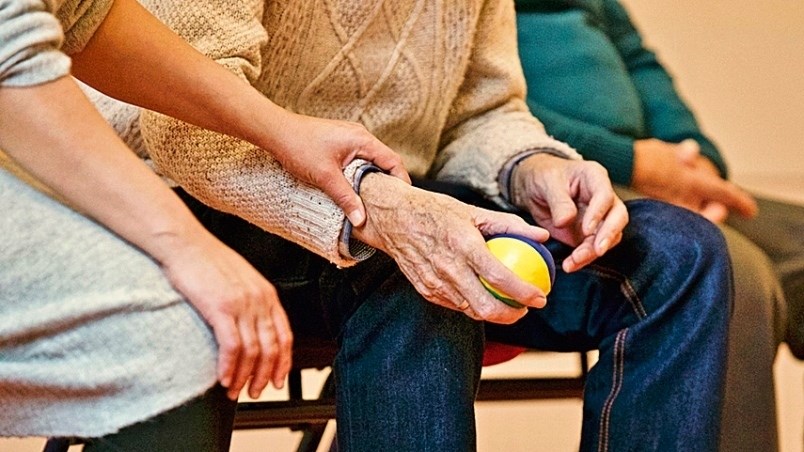January was Alzheimer Awareness Month in British Columbia, with the aim of the campaign being to eliminate the stigma around the disease by changing attitudes.
Too often people are quick to point out the down side of the disease, are confused about its prevalence, or they maintain a variety of misconceptions about the disease due to unclear information. This sometimes results in people feeling ashamed and perhaps not feeling like they can access the help they need as a diagnosed individual or as a caregiver.
The good news is that there is only a small percentage of people who get Alzheimer’s disease. According to the B.C. seniors advocate, in a recent article in the Vancouver Sun: “If you look at age 85 and over, 20 per cent do have a diagnosis of dementia — but four out of five don’t.”
She also said that “when it comes to nursing homes, most people might think that every resident has dementia or Alzheimer’s. In fact, about 35 per cent don’t and two-thirds have only mild cognitive impairment.” Bear in mind that less than eight per cent of the B.C. seniors’ population required care in 2018.
But the bad news is that for those that do get the disease, and for their families and caregivers, Alzheimer’s can be devastating.
The first step for people is to get the clear information that they’ll need to support their loved one on their journey as an individual with the disease or as a family member or friend who will take on the challenging and sometimes gruelling role of caregiver.
As a newly diagnosed individual, a family member or caregiver, if you have questions about dementia, call First Link Dementia Helpline at 1-800-936-6033. As the helpline’s website states: “The helpline assists individuals in building the confidence to maintain quality of life when facing dementia. A trained, caring team of staff and volunteers will answer your call and can provide information and support about definitions of the disease, getting a diagnosis, planning, care and support, and resources.”
Don’t delay calling, early support can avert a crisis.
A first question might be what is Alzheimer’s disease? The Alzheimer Society’s website defines dementia as an overall term for a set of symptoms that are caused by disorders affecting the brain. Symptoms may include memory loss and difficulties with thinking, problem solving or language, severe enough to reduce a person’s ability to perform everyday activities.
A person with dementia may also experience changes in mood or behaviour. Dementia is progressive, which means the symptoms will gradually get worse as more brain cells become damaged and eventually die. There are many types of dementia, including Alzheimer’s disease, vascular dementia, Lewy body dementia and frontotemporal dementia.
It’s estimated that 70,000 people in British Columbia are living with some form of dementia and this number is expected to double by 2031. There is often a stigma attached to dementia. But, as the Alzheimer Society states, “everyone has a responsibility to help make their community a dementia-friendly place.”
In Canada, as part of its commitment to improving the lives of Canadians with dementia, as well as their families and their caregivers, the country is moving forward with a national dementia strategy.
On the North Shore the three municipalities have received a dementia-friendly designation, which are defined by the Alzheimer Society as “characterized by a heightened awareness of dementia and rely on individuals who take a little bit of time to learn how to recognize that someone has dementia and how they can respond in a respectful, effective way.”
There has been a prevailing notion that care facilities are warehouses for people with dementia, but there have been attempts to build more caring places for people. Dementia villages, many inspired by Hogeweyk, the world’s first dementia village in the Netherlands, are opening in Comox and Langley, for example.
If you can afford it, a seniors living community can offer a respectful and caring environment which encourages appropriate independence for residents with dementia.
On the North Shore there are a number of supports for people who have a diagnosis and for those looking after them. A major resource is the Alzheimer Society of B.C. Resource Centre which can be found in Lynn Valley, or you can call them at 604-984-8348.
Minds in Motion is a fitness and social program for people experiencing early symptoms of Alzheimer’s disease or another dementia. Two organizations on the North Shore provide the programs, Silver Harbour and West Vancouver Seniors’ Activity Centre. The program involves a 45-minute fitness program led by a certified fitness instructor, followed by an hour of socializing, refreshments, and activities such as board games, trivia games, word games, bingo, or other activities.
My Parkgate Break program operated by Parkgate Community Services Society has been a gathering place for individuals experiencing the changes associated with mild to moderate dementia. The mission is to support and enhance the lives of families on the dementia journey.
Let’s not forget the caregiver who may need respite as well as community supports. For information about supports, check out the Seniors Directory, published by the North Shore News and North Shore Community Resources Society.
Margaret Coates is the co-ordinator of Lionsview Seniors’ Planning Society. She has lived on the North Shore for 48 years and has worked for and with seniors for 20 of those years. Ideas for future columns are welcome Email: [email protected].
What are your thoughts? Send us a letter via email by clicking here or post a comment below.



